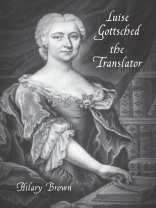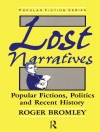By focusing on Luise Gottsched’s extraordinary volume and range of translations, Hilary Brown sheds an entirely new light on Gottsched and her oeuvre.
Critics have paid increasing attention to the oeuvre of Luise Gottsched (1713-62), Germany’s first prominent woman of letters, but have neglected her lifelong work of translation, which encompassed over fifty volumes and an extraordinary range, from drama and poetry to philosophy, history, archaeology, even theoretical physics. This first comprehensive overview of Gottsched’s translations places them in the context of eighteenth-century intellectual, literary, and cultural history, showing that they were part of an ambitious, progressive program undertaken with her famous husband to shape German culture during the Enlightenment. In doing so it casts Gottsched and her work in an entirely new light. Including chapters on all the main subject areas and genres from which Gottsched translated, it also explores the relationship between her translations and her original works, demonstrating that translation was central to her oeuvre. A bibliography of Gottsched’s translations and source texts concludes the volume. Not only a major new addition to a growing body of research on the Gottscheds, the book will also be valuable reading for scholars interested more broadly in women’s writing, the history of translation, and the literature and culture of the German (and European) Enlightenment.
Hilary Brown is Lecturer at the University of Birmingham, UK.
Cuprins
Introduction
Gottsched as Female Translator
Philosophy and Religion
Journalism
Drama
Poetry and Literary Prose
Science and Scholarship
Translation and ‘Original’ Writing
Conclusion
Appendix: Luise Gottsched’s Translations and Adaptations
Works Cited
Index












